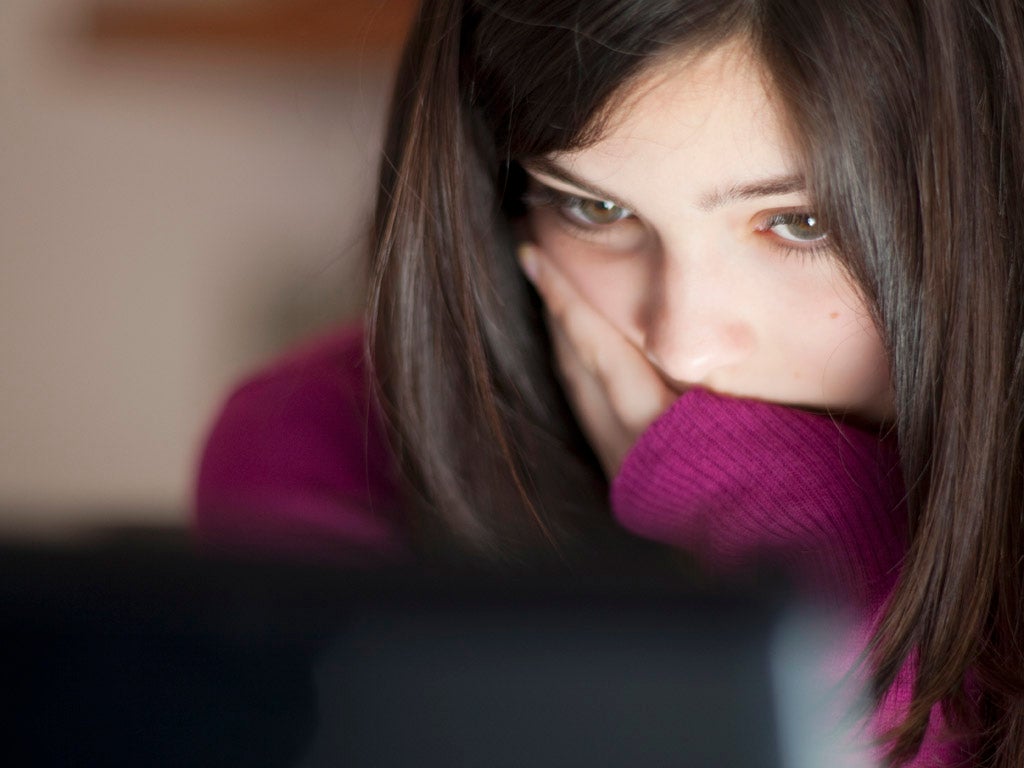The Pretty Ugly project: Why do young girls turn to YouTube and ask people to judge their looks?
The girls are throwing themselves into the jaws of the trolling community

It's 2012. I'm posing as three teenage girls - Becky, Baby and Amanda - and I'm posting videos of myself on YouTube asking its viewers to tell me whether I'm pretty or ugly. The 15-year-old inside me is screaming/confused/cringed-out.
Why am I doing this? Last year as part of my research into the ways teenage girls use social media, I stumbled across a YouTube trend where girls are doing exactly this: posting videos of themselves (sometimes dressed, sometimes in a bikini), asking viewers to tell them whether they are pretty or ugly. There are thousands of these videos, and the average age of the girls is 8-13 years old. Often accompanied by a pulsing pop soundtrack and a dim view into a messy teenage bedroom, these girls pout and pose their way through the videos. I was struck by how earnest they were: 'Guys, I just really need to know... So comment down below, or message me ok? Oh and subscribe! Peace.'
Now, in 2013, and here's some of what I learnt from my YouTube experiment: I'm ugly, I should lose the glasses, I should f**k off and die, I shouldn't post these videos, I should 'send nudes'. I've estimated that 70 per cent of feedback was negative. Surprised? I didn't think so. The results of my experiment are not much different to any of the other girls posting these videos. So why post them?
As a teenager, I remember wanting answers to similar questions, but there was no way I would have walked up to a stranger and asked them to rate my looks. In some way it strikes me as quite a brave deed - surely the girls know they are throwing themselves like little posey-little-lambs into the jaws of the trolling community? Perhaps their desire for real, impartial answers overrides this? Or maybe they have noticed similar videos online and they just fancy hopping on the bandwagon - hoping that one day they might reach the dizzying heights of 'YouTube-Superstar'?
I'm curious how my generation differed to this current generation of teenagers. My first fleeting awareness of the internet was: perverts, superfluous Hotmail accounts, MSN messenger. Dangerous and surplus all at once. Skip forward a few years and I remember the arrival of Facebook. I remember the novelty and joy of that platform transforming over my university years into paranoia and anxiety - a feeling of detagdetagdetag, of why-the-f**k-is-everyone-having-so-much-more-fun-than-me-loserishness. [If I sound like a teenager, that's intentional].
What are the repercussions of growing up with social media; with its constant reblogging and retweeting; its selfies; its emphasis on self-editing? What is the effect on how we perceive ourselves and each other? And when did it become so OK to be brazen about the fact that you are appearance-obsessed? These questions make up the basis of my new theatre show in which I present the results of my YouTube experiment and my research from working with teenage girls, I roller-skate back into my own teenage mind – and, of course, challenge the audience to rate whether I’m pretty or ugly, too.
What stays with me from my research is the following: I found the majority of commenters on my videos were male. Most female commenters left positive comments whereas the majority of male comments left more than a little to be desired. I also received many private messages from men... need I say more?
I wonder just how much the internet is doing for the feminist cause. In the last year we've seen how its power can unite feminists worldwide; has helped those communities grow and be heard. But on the other hand the results of this internet project speak of a darker, and frankly misogynist, undercurrent. People often celebrate the web’s culture of anonymity: it encourages free speech and gives people a chance to show their true colours. But is this an insight into what people really feel, or are there grounds to wonder whether anonymity just encourages cyber-bullying?
And as for the girls, why? I asked many, and still don't have much of an understanding. But it might have something to do with living in a society which prizes the appearance of women much more highly than it does their actions, their voices.
I understand that not all teenagers act in this way. The Pretty Ugly project aims to raise awareness of this trend, sense what it’s like to be part of it – and shed some light on wider ways in which we’re treating and viewing girls and young women, and how damaging that can be to young minds. I hope that by working with teenage girls I can help them to care a little less about their appearance, and help their voices be heard.
'Pretty Ugly' is a theatre show and a campaign. Find out more here: www.prettyorugly.wordpress.com. Pretty Ugly' runs 23 Oct to 9 Nov, Camden People's Theatre, London www.cptheatre.co.uk
Join our commenting forum
Join thought-provoking conversations, follow other Independent readers and see their replies
0Comments